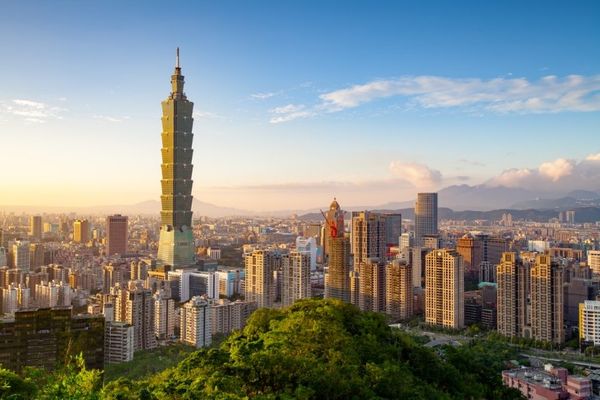11.3.2
Borders
Borders
Borders
The borders of nation states have originated based upon a variety of factors:


Natural barriers
Natural barriers
- Natural barriers, such as mountains and rivers have traditionally been the borders of nation states.
- The Himalayas has traditionally separated India and China.
- The Iguazu Falls and the Iguazu River is right on the border of Argentina, Brazil and Paraguay.


Cultural and linguistic groups
Cultural and linguistic groups
- The borders of many European countries are based around historically shared language origins.
- Spanish, Portuguese, French and Italian are historically Romance languages.
- English, German, and Swedish are historically Germanic languages.
- Russian, Polish and Bulgarian, are historically Slavic languages.


Politics
Politics
- Political decision-making can affect borders.
- The Treaty of Versailles after World War One drew many of Europe's borders. Many disliked the arbitrary nature of many of these borders.
- The 49th parallel separating the USA and Canada was agreed by the Treaty of Oregon in 1846.
- An armistice after the Korean War decided the location of the North Korean-South Korean border.


Colonial decision-making
Colonial decision-making
- The Spanish, German, English and Dutch colonial powers of 19th century Europe divided up much of the world arbitrarily based on their land grabs.
- Many of the borders in Africa were decided by these colonial powers.
- The colonialists were more concerned with dividing Africa's raw materials and water resources amongst themselves.


Ethnic regions
Ethnic regions
- Long-established ethnic regions have often been split between two or more countries, leading to conflict and problems around sovereignty and legitimacy.
Contested Borders
Contested Borders
Some borders are contested by one or both countries on each side of it.


Alsace/Lorraine
Alsace/Lorraine
- Alsace and Lorraine was a long-disputed territory, with both France and Germany claiming it.
- It is an advantageous industrial area, which is rich in coal and iron ore.
- France lost Alsace to Germany in the Franco-Prussian war in 1871. France then claimed the territory back at the Treaty of Versailles in 1919.


Russia/Ukraine
Russia/Ukraine
- Access to the Black Sea is viewed as strategically important for Russia from a military/security perspective.
- Russia annexed Crimea in 2014, giving Russia strategic control in the Black Sea.


North/South Korea
North/South Korea
- An armistice signed at the end of the Korean War established a demilitarised zone between the two countries and created the border that still exists today.


Kosovo
Kosovo
- The states that used to make up Yugoslavia are still subject of border disputes today.
- The legitimacy of Kosovo is questioned by some countries.
- At the 2018 World Cup, Swiss footballers, Granit Xhaka and Xherdan Shaqiri supported Kosovan independence. Both have Albanian/Kosovan heritage.


Taiwan
Taiwan
- Some states are not recognised by some other states.
- China does not recognise Taiwan as a state, but the USA does recognise Taiwan.
1Tectonic Processes & Hazards
1.1Tectonic Processes & Hazards
1.2Natural Disasters
1.3Natural Disaster Case Studies
1.4Trends & Patterns
2Option 2A: Glaciated Landscapes & Change
2.1Glaciated Landscapes Over Time
2.2Periglacial Landscapes
2.3Glacial Processes
2.4Glacial Landforms
3Option 2B: Coastal Landscapes & Change
3.1Coastal Landscapes
3.2Coastal Erosion & Deposition
3.3Coastal Risks
4Globalisation
4.1Globalisation
4.2Negatives of Globalisation
4.3Global Shift
4.5Culture
4.6Measuring Development
5Option 4A: Regenerating Places
5.1Types of Economies
5.2Function of Places
5.3Regeneration
5.4Regeneration Case Studies
6Option 4B: Diverse Places
6.1Population Structure
6.2Past & Present Connections
6.3Urban & Rural Spaces
6.4Diversity
6.5Urban & Rural Case Studies
6.6Case Study - Tower Hamlets
6.7Case Study - Sturton-le-Steeple
7The Water Cycle & Water Insecurity (A2 only)
7.1Hydrological Processes Global to Local
7.2Influences on the Water Cycle
7.3Water Insecurity
8The Carbon Cycle & Energy Security (A2 only)
8.1The Carbon Cycle
8.2Energy Consumption
8.3Alternative Energy
8.4Growing Demand for Resources
9Superpowers (A2 only)
9.1Superpowers
9.2Hard & Soft Power
9.2.1Hard & Soft Power
9.2.2Emerging Powers - China Rivalry
9.2.3Emerging Powers - Chinese Sources of Power
9.2.4Emerging Powers - Brazil
9.2.5Emerging Powers - Russia
9.2.6Emerging Powers - India
9.2.7Theories of Development
9.2.8Power Case Studies: Chinese One Belt One Road
9.2.9Power Case Studies: Pakistan Nuclear Arms
9.2.10Power Case Studies: OPEC
9.3IGOs, TNCs & Alliances
10Option 8A: Health & Human Rights (A2 only)
10.1Human Development
10.2Role of Governments & IGOs
10.3Human Rights
10.4Interventions
11Option 8B: Migration & Identity (A2 only)
11.1Globalisation & Migration
11.2Consequences of Migration
11.3Nation States
11.4Responses to Global Migration
Jump to other topics
1Tectonic Processes & Hazards
1.1Tectonic Processes & Hazards
1.2Natural Disasters
1.3Natural Disaster Case Studies
1.4Trends & Patterns
2Option 2A: Glaciated Landscapes & Change
2.1Glaciated Landscapes Over Time
2.2Periglacial Landscapes
2.3Glacial Processes
2.4Glacial Landforms
3Option 2B: Coastal Landscapes & Change
3.1Coastal Landscapes
3.2Coastal Erosion & Deposition
3.3Coastal Risks
4Globalisation
4.1Globalisation
4.2Negatives of Globalisation
4.3Global Shift
4.5Culture
4.6Measuring Development
5Option 4A: Regenerating Places
5.1Types of Economies
5.2Function of Places
5.3Regeneration
5.4Regeneration Case Studies
6Option 4B: Diverse Places
6.1Population Structure
6.2Past & Present Connections
6.3Urban & Rural Spaces
6.4Diversity
6.5Urban & Rural Case Studies
6.6Case Study - Tower Hamlets
6.7Case Study - Sturton-le-Steeple
7The Water Cycle & Water Insecurity (A2 only)
7.1Hydrological Processes Global to Local
7.2Influences on the Water Cycle
7.3Water Insecurity
8The Carbon Cycle & Energy Security (A2 only)
8.1The Carbon Cycle
8.2Energy Consumption
8.3Alternative Energy
8.4Growing Demand for Resources
9Superpowers (A2 only)
9.1Superpowers
9.2Hard & Soft Power
9.2.1Hard & Soft Power
9.2.2Emerging Powers - China Rivalry
9.2.3Emerging Powers - Chinese Sources of Power
9.2.4Emerging Powers - Brazil
9.2.5Emerging Powers - Russia
9.2.6Emerging Powers - India
9.2.7Theories of Development
9.2.8Power Case Studies: Chinese One Belt One Road
9.2.9Power Case Studies: Pakistan Nuclear Arms
9.2.10Power Case Studies: OPEC
9.3IGOs, TNCs & Alliances
10Option 8A: Health & Human Rights (A2 only)
10.1Human Development
10.2Role of Governments & IGOs
10.3Human Rights
10.4Interventions
11Option 8B: Migration & Identity (A2 only)
11.1Globalisation & Migration
11.2Consequences of Migration
11.3Nation States
11.4Responses to Global Migration
Unlock your full potential with Seneca Premium
Unlimited access to 10,000+ open-ended exam questions
Mini-mock exams based on your study history
Unlock 800+ premium courses & e-books